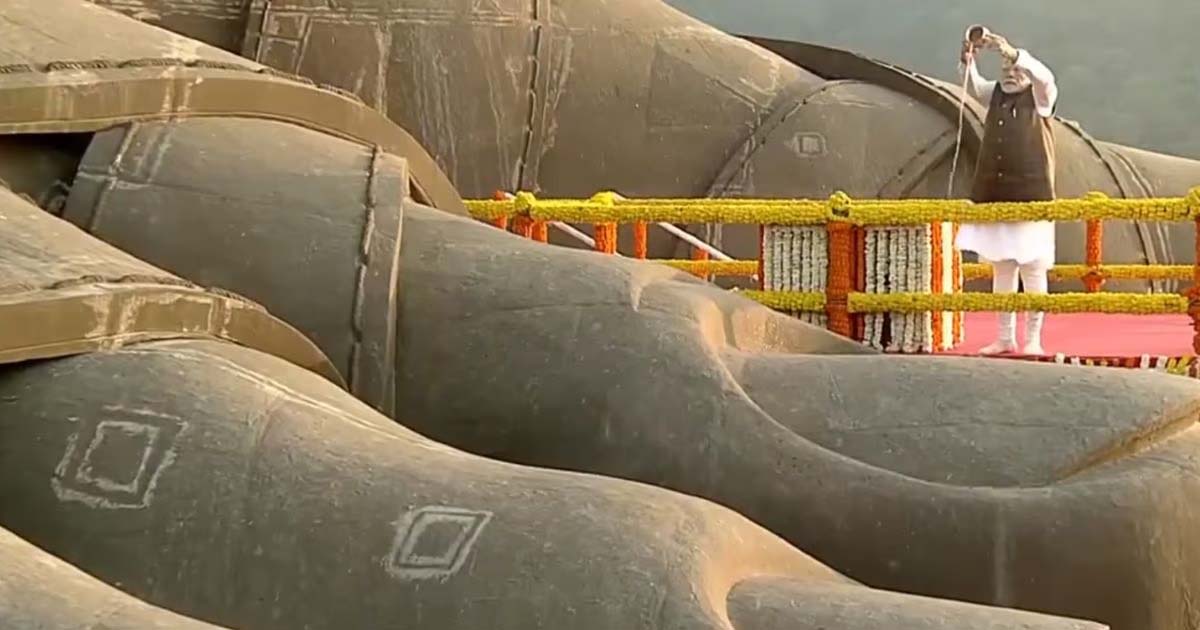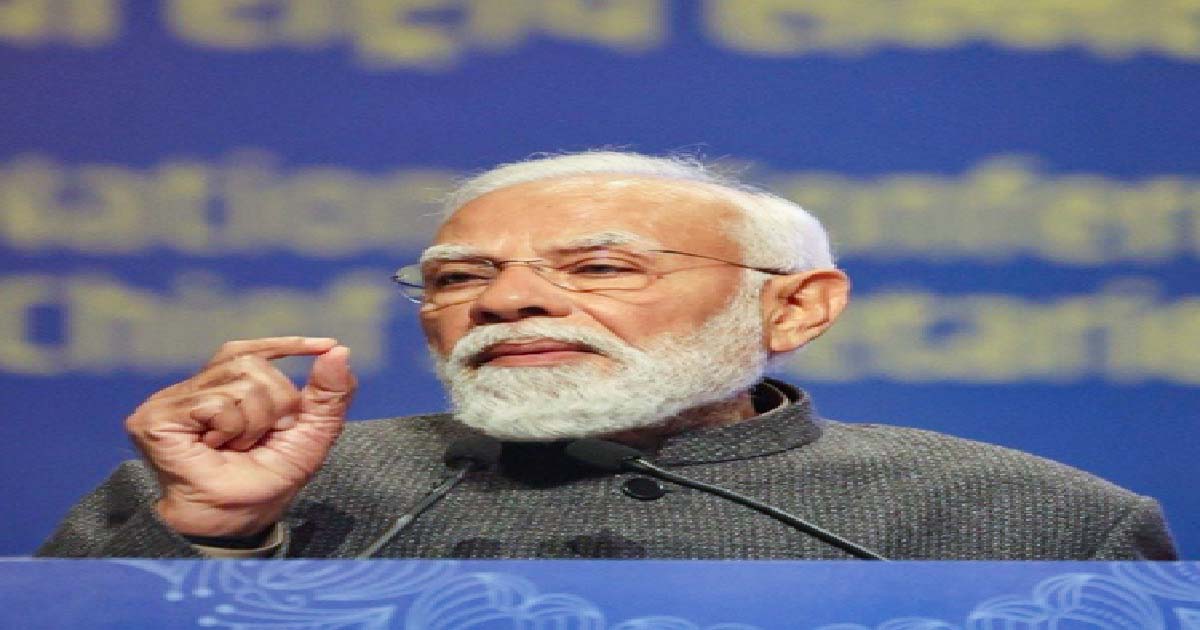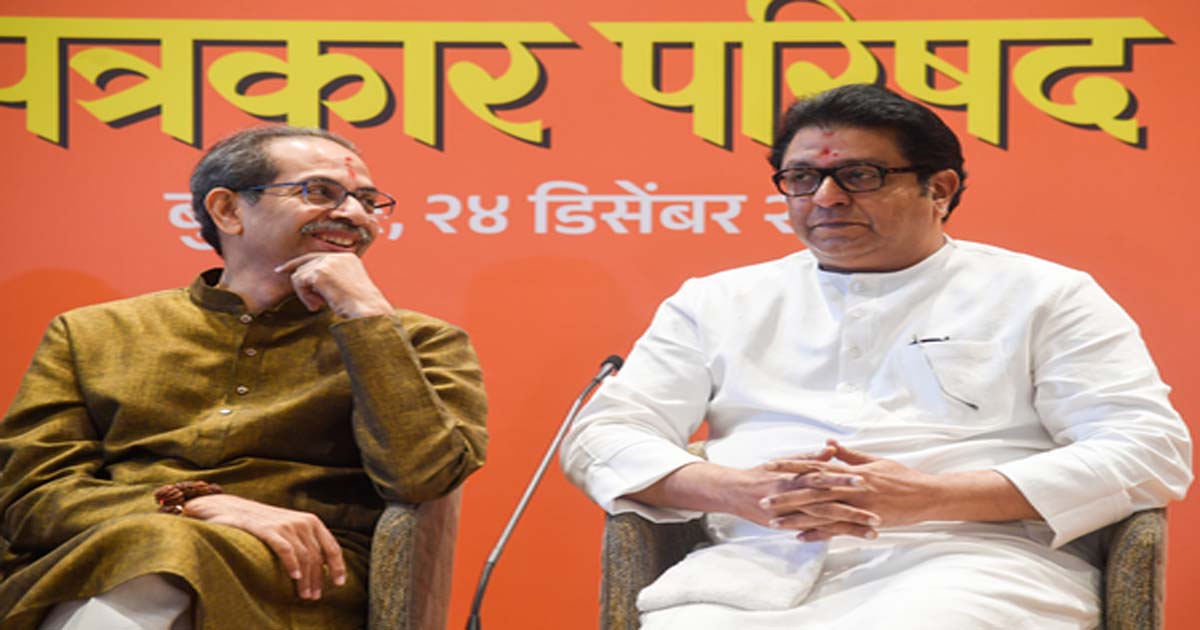National News
Gujarat: PM Modi Pays Tribute To Sardar Vallabhbhai Patel On His 150th Birth Anniversary At Statue Of Unity, Attends Unity Day Parade

Narmada (Gujarat): Prime Minister Narendra Modi paid tribute to Sardar Vallabhbhai Patel on his birth anniversary at the Statue of Unity in Kevadia, Gujarat, on Thursday.
After honouring Patel, the Prime Minister administered the Unity Oath and attended the ‘Rashtriya Ekta Diwas’ parade or the Unity Day Parade at the Parade Ground in Kevadia.
Earlier today, Prime Minister Modi paid tribute to Sardar Vallabhbhai Patel on his 150th birth anniversary, stating that Patel’s work continues to inspire future generations.
Tweet Of PM Modi
“My salutations to Bharat Ratna Sardar Vallabhbhai Patel on his birth anniversary. Protecting the unity and sovereignty of the nation was the top priority of his life. His personality and work will continue to inspire every generation of the country,” PM Modi said on X.
About Ekta Diwas Parade
Ekta Diwas Parade comprises 16 marching contingents from nine states and one UT, four Central Armed Police Forces, NCC and a marching band. Special attractions include a Hell March contingent of the NSG, daredevil show by BSF and CRPF women and men bikers, a show on combination of Indian Martial Arts by BSF, a piped band show by school children and ‘Surya Kiran’ flypast by Indian Air Force.
Sardar Vallabhbhai Patel’s birth anniversary is celebrated as National Unity Day or Rashtriya Ekta Diwas on October 31. Since 2014, this day has been marked by ‘Run for Unity’ events nationwide, which is participated by people from all walks of life.
Who Was Sardar Vallabhbhai Patel?
Born on October 31, 1875, in Nadiad, Gujarat, Sardar Patel is credited with uniting all 562 princely states of pre-independent India, helping to establish the Republic of India. He served as the country’s first Deputy Prime Minister and Home Minister from 1947 to 1950. He passed away on December 15, 1950.
Crime
Navi Mumbai Crime Branch Busts 3 Overseas Job Fraud Rackets In CBD Belapur, 154 Passports Seized, 8 Arrested

Navi Mumbai, Dec 31: The Navi Mumbai Police Crime Branch has busted an overseas job fraud racket by raiding three bogus HR and manpower supply companies in CBD Belapur that were allegedly cheating unemployed youth by luring them with foreign job offers without possessing the mandatory licence from the Ministry of External Affairs (MEA). During the coordinated operation, police seized 154 passports and arrested eight persons.
The action followed a tip-off received by MEA official Rajeshkumar, who alerted the Navi Mumbai Police after learning that several offices in CBD Belapur were illegally collecting money from job aspirants and falsely promising employment abroad despite lacking the required MEA authorisation.
Acting on the information, Crime Branch Unit-2, under the leadership of Senior Police Inspector Anil Patil, formed three teams and conducted simultaneous raids on December 26.
Police raided HR Global at Vishnu Complex in Sector 15, Vision Arabia HR Solution at Hilton Centre in Sector 11, and Bright Tech Marine Services at Sai Chambers.
During the searches, officers recovered 136 passports from HR Global, 18 passports from Bright Tech Marine Services, and several important documents from Vision Arabia HR Solution.
Investigations revealed that the owners and staff of all three firms were operating without the mandatory MEA licence and were illegally charging candidates while making false promises of overseas employment.
Accordingly, the Crime Branch registered a case at CBD Police Station under Sections 318(2) and 318(4) of the Bharatiya Nyaya Sanhita, along with Sections 10 and 24 of the Emigration Act, 1983.
The arrested accused include Rochak Joshi (30), Sachin Sathale (45), Amit Kadam (41), Devidas Dhangar (38), Sagar Chorat (33) and three others.
“The accused were running fake recruitment operations and collecting passports and money from candidates without any legal authority to send Indian citizens abroad for employment. We have seized a large number of passports and documents, and further investigation is underway to identify more victims,” said Senior Police Inspector Anil Patil.
Police said the exact number of people cheated by the racket is yet to be ascertained, and efforts are underway to trace victims of the fraud.
Meanwhile, the Navi Mumbai Police have urged citizens to remain cautious and verify the MEA licence of any overseas recruitment agency before making payments, warning that strict action will be taken against those involved in such fraudulent activities.
National News
As 2025 ends, these words of wisdom from PM Modi offer lessons for youth

New Delhi, Dec 31: As the eventful 2025 draws to an end and the New Year arrives, triggering spirited celebrations across the world, the Modi Archive – a popular social media handle on X, has shared a collection of ‘life lessons’ from Prime Minister Narendra Modi, which could serve the youth well in navigating through their lives.
Wading through various speeches and quotes by PM Modi over the decades, the Modi Archive has shared a rare collection of his inspirational messages – reflecting his courage and determination to bring a turnaround in the lives of people, while also inspiring enough to be emulated by others.
“As 2025 ends, we revisit enduring words on hope and resolve from @Narendra Modi, spoken across decades,” the X handle said in a post.
The video, the ‘words of wisdom’ by PM Modi, revealed the power of positive thinking, never-say-die attitude, overcoming insurmountable challenges, shaping lives through one’s thoughts and also lighting a lamp for the unprivileged.
Emphasising the power of positive thinking and its ability to change our lives, PM Modi said, “We should always be optimistic about life, and there shouldn’t be any space for negativity. This happens when we encourage and instil positive thinking in ourselves as well as our surroundings. There is inherent power in positive thinking, and it has the potential to change the world around you.”
He further said, “If a storm arises in the ocean, we can’t change it, but we can certainly alter the course of the ship we are sailing on; we know for sure how to change its direction.”
In the video, PM Modi is also heard sharing the “real formula” of success.
“If your heart is clear, if you have clarity in your ideas, have conviction to do and have courage to face the odds, I am sure one can achieve his/her goals,” he said in the undated speech.
Sharing insights on turbulence and turmoil in one’s life and how to ward it off, he explained, “just like the weather undergoes routine change throughout the year, life has its own ups and downs. As we navigate through any phase, clouds come and pass, sometimes the sun shines bright, while at times, moonlight takes away the spotlight. One should stay focused on the goal and shouldn’t waver from one’s path. One should keep following his path with conviction. There is no need to doubt yourself, as sooner or later, this will become a reality.”
He also underlined the importance of putting effort above monetary returns, stating that once this priority is set, it automatically paves the way for success.
“The desire to do good work should override the desire to earn good money. If one desires to do good work, it automatically leads to better outcomes,” he explained.
Highlighting the fact “your thoughts shape your future”, he said, “Our future doesn’t hinge on our future action, rather it’s an outcome of our present work. What shapes tomorrow is the way we think about it today. Those who keep whining about the past can never build a beautiful tomorrow.”
He further advised fellow workers and youth to keep chasing success by putting in maximum effort and not worrying about it.
“We must move forward with a positive attitude. If we keep trying with conviction and dedication – success does follow, it is my firm belief,” he said.
The video concluded with his message for lighting a lamp in the lives of those, where darkness has taken over.
“There might be a thick layer of darkness with no relief in sight, but is it forbidden to lighten a lamp? Come forward, take a step to light up those homes where there are no lights,” the Prime Minister said in a moving message.
National News
Unprecedented swapping of friends and foes in Maha politics as parties gear up for municipal elections

Mumbai, Dec 31: In an unprecedented political development, the traditional battle lines of Maharashtra politics have dissolved into chaos ahead of the upcoming elections for 29 Municipal Corporations. The state’s major political fronts — the ruling Mahayuti and the opposition Maha Vikas Aghadi (MVA) — have failed to maintain a uniform seat-sharing formula, leading to a confusing scenario where allies in one city are bitter rivals in another.
As of Tuesday, which was the last day for filing nominations, the political landscape is so fragmented that leaders may find themselves attacking a party in an afternoon rally in one city, only to praise the same party in another city by the evening.
Until Monday, it was expected that the BJP and Eknath Shinde’s Shiv Sena would contest most seats together. However, by Tuesday, several cracks appeared in the Mahayuti alliance. Similarly, the Congress has formed different local tie-ups across various cities, further complicating the MVA’s national image of unity.
In a surprise move, the two factions of the Nationalist Congress Party (NCP) — led by Ajit Pawar and Sharad Pawar — who are rivals at the state level, have joined hands for the Pune and Pimpri-Chinchwad municipal elections. Conversely, Ajit Pawar’s NCP, which is contesting solo in Nagpur, has formed an alliance with the BJP in Akola.
The ruling Mahayuti alliance has failed to reach an agreement in 24 out of 29 municipal corporations. In these cities, the constituent parties (BJP, Shinde’s Shiv Sena, and Ajit Pawar’s NCP) will contest against one another. The impacted cities include Jalna, Parbhani, Latur, Amravati, Pimpri-Chinchwad, Chhatrapati Sambhajinagar, Solapur, Akola, Malegaon, Nanded, Nagpur, Sangli, Nashik, Dhule, Pune, Mumbai, Thane, Ulhasnagar, Navi Mumbai, Mira-Bhayandar, Bhiwandi, and Vasai-Virar.
The BJP-NCP (Ajit Pawar) alliance is limited to only Akola, Ahilyanagar, and Panvel. On the other hand, the BJP-Shiv Sena (Shinde) alliance is formed only in Chandrapur, Nagpur, Mumbai, Thane, Kalyan-Dombivli, and Bhiwandi. Further, the Mahayuti parties will face off directly in four locations: Ichalkaranji (friendly fights), Kolhapur, Jalgaon, and Panvel.
As far as Maha Vikas Aghadi is concerned, it has also seen widespread fragmentation, with the alliance breaking down in 17 locations, including Nagpur, Malegaon, Parbhani, Latur, Chhatrapati Sambhajinagar, Nanded, Sangli, Kolhapur, Jalgaon, Pune, Mumbai, Thane, Ulhasnagar, Navi Mumbai, Mira-Bhayandar, Bhiwandi, and Vasai-Virar.
The MVA remains intact in only five locations: Panvel, Jalna, Solapur (including MNS), Nashik (including MNS), and Dhule. Moreover, the Congress has allied with the Vanchit Bahujan Aghadi (VBA) only in Mumbai. A similar attempt was made in Pune but failed due to conflicts between local leaders.
In the case of Thackeray-MNS-Sharad Pawar” factor, these parties have joined hands in Mumbai, Thane, Ulhasnagar and Kalyan-Dombivli.
Some of the key cities witness a flurry of activities to stitch alliances, though some parties at the last minute decided to take a U-turn. In Mumbai, a multi-cornered battle emerges. Congress has allied with the Vanchit Bahujan Aghadi (VBA). The Uddhav Thackeray-led Sena (UBT) has joined forces with MNS and Sharad Pawar’s NCP. The BJP and Shinde’s Shiv Sena remain united here.
In Pune, in a rare display of “family unity”, the Ajit Pawar and Sharad Pawar factions of the NCP have formed an alliance. They face a front consisting of the Congress, Shiv Sena(UBT), and MNS. The BJP is allied with the RPI, while Eknath Shinde’s Shiv Sena is contesting solo.
In Thane, the BJP and Shiv Sena are contesting together, while the Ajit Pawar-led NCP is going solo. On the other side, Shiv Sena(UBT), MNS and Sharad Pawar’s NCP have tied up while Congress is fighting independently.
Nagpur, which is CM Devendra Fadnavis’s home turf, sees a BJP-Shinde Sena alliance. However, the Congress, BSP, and Ajit Pawar’s NCP are all contesting independently.
In Pimpri-Chinchwad, similar to Pune, both NCP factions are united. The BJP remains with RPI, while the Shinde Sena, Congress, and VBA are all going solo. The Chhatrapati Sambhajinagar and Latur see a complete breakdown of major alliances, with BJP, Shinde Sena, and Shiv Sena(UBT) all contesting independently.
The “pick-and-choose” nature of these local alliances has left voters and party workers bewildered. Chief Minister Devendra Fadnavis and Deputy CM Eknath Shinde, who will campaign together in Mumbai and Thane, will be forced to campaign against each other’s candidates in several other corporations.
The data indicate that local political equations have completely superseded state-level pacts. With the Mahayuti split in 24 cities, and the MVA in 17, these elections will feature highly localised and multi-cornered contests.
Political analysts suggest that this “unprecedented swapping of friends and foes” reflects the high stakes of local body elections, where regional dominance often outweighs state-level ideological pacts. With no clear “opponent” common across the 29 corporations, the 2026 municipal elections are set to be the most unpredictable in Maharashtra’s history.
-

 Crime3 years ago
Crime3 years agoClass 10 student jumps to death in Jaipur
-

 Maharashtra1 year ago
Maharashtra1 year agoMumbai Local Train Update: Central Railway’s New Timetable Comes Into Effect; Check Full List Of Revised Timings & Stations
-

 Maharashtra1 year ago
Maharashtra1 year agoMumbai To Go Toll-Free Tonight! Maharashtra Govt Announces Complete Toll Waiver For Light Motor Vehicles At All 5 Entry Points Of City
-

 Maharashtra1 year ago
Maharashtra1 year agoFalse photo of Imtiaz Jaleel’s rally, exposing the fooling conspiracy
-

 National News1 year ago
National News1 year agoMinistry of Railways rolls out Special Drive 4.0 with focus on digitisation, cleanliness, inclusiveness and grievance redressal
-

 Maharashtra1 year ago
Maharashtra1 year agoMaharashtra Elections 2024: Mumbai Metro & BEST Services Extended Till Midnight On Voting Day
-

 National News1 year ago
National News1 year agoJ&K: 4 Jawans Killed, 28 Injured After Bus Carrying BSF Personnel For Poll Duty Falls Into Gorge In Budgam; Terrifying Visuals Surface
-

 Crime1 year ago
Crime1 year agoBaba Siddique Murder: Mumbai Police Unable To Get Lawrence Bishnoi Custody Due To Home Ministry Order, Says Report












